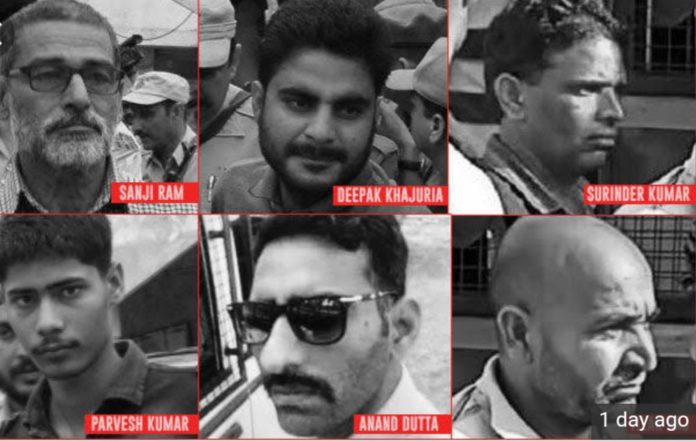The prosecution’s failure to verify accused Vishal Jangotra’s alibi during the probe in the Kathua rape and murder case led to his acquittal, the special court said as it blamed the Jammu Crime Branch for withholding evidence against him.
“This court is of opinion that all this goes to show there is a big lacuna in the prosecution case against Vishal Jangotra in this regard as prosecution failed to verify genuinely the plea of alibi raised by accused Vishal Jangotra at the first instance during the investigation of the case,” it said in the detailed order passed on Monday.
Vishal Jangotra was the only one among the seven accused to be acquitted by the court. Three, including his father Sanji Ram who was the key conspirator, were given life sentences.
The court also raised the issue of the prosecution failing to question Inspector Kewal Kishore who had done most of the investigation regarding Vishal Jangotra’s alleged role in the crime.
“Almost all investigating officers had deposed that investigation qua Vishal was done by Inspector Kewal Kishore and it was essential for the prosecution to make a foolproof case against accused Vishal Jangotra to examine Inspector Kewal Kishore in this case,” the court observed.
It said that for the reasons best known to the prosecution, the inspector was not examined in this case “which is certainly a lacuna in the prosecution”.
The crime branch, however, contended that the inspector was a part of a team that had undertaken seizures in this case and other members had deposed and recorded their statements before the court.
Pointing out some elementary mistakes in the investigation, the court observed that Sub Inspector Urfan Wani categorically deposed that before arresting Vishal Jangotra from Uttar Pradesh’s Meeranpur, they had not asked his college or his examination centre whether he had regularly appeared for his examination that started from January 9, 2018.
“He (Wani) further admitted the fact that till 17.03.2018, there was no report of any handwriting expert in this regard and he did not record the statement of any official or principal, teacher, examiner or student regarding absence of the accused,” the court said.
In his deposition, Urfan Wani also stated that he had recorded the statement of Vishal Jangotra’s landlady, Suman Sharma, in Urdu “… and he does not know whether Suman Sharma knew the language or not,” it observed.
The court also pointed out that the investigating official had not verified the authenticity of a news report aired by a private channel which claimed that Vishal Jangotra was in Meeranpur on the day of the crime, based on a footage obtained from an ATM.
“No statement of any official of SBI Meeranpur was recorded regarding this. Urfan Wani further admitted that on confiscating the hard disk pertaining to the ATM of Meeranpur, the said hard disk was never sealed from any magistrate,” it added.
The crime branch had seized the disk and approached the local magistrate who refused to be a part of the investigation. The police officers later approached the Meeranpur police station and informed about the seizure. On arrival, the disk was produced before a magistrate and resealed.
The court said during the investigation, Urfan Wani had seized a practical sheet dated January 14, 2018 which should have been produced before the court.
“But this practical sheet was never produced by Crime Branch, Jammu before this court. Accordingly, it is observed that the best evidence has been withheld by Crime Branch Jammu.
“Accordingly, an adverse inference is drawn and as such in view of the other evidence on record, it is held that accused Vishal Jangotra during the time of commission of crime was in UP and not in Kathua,” the court concluded.









































